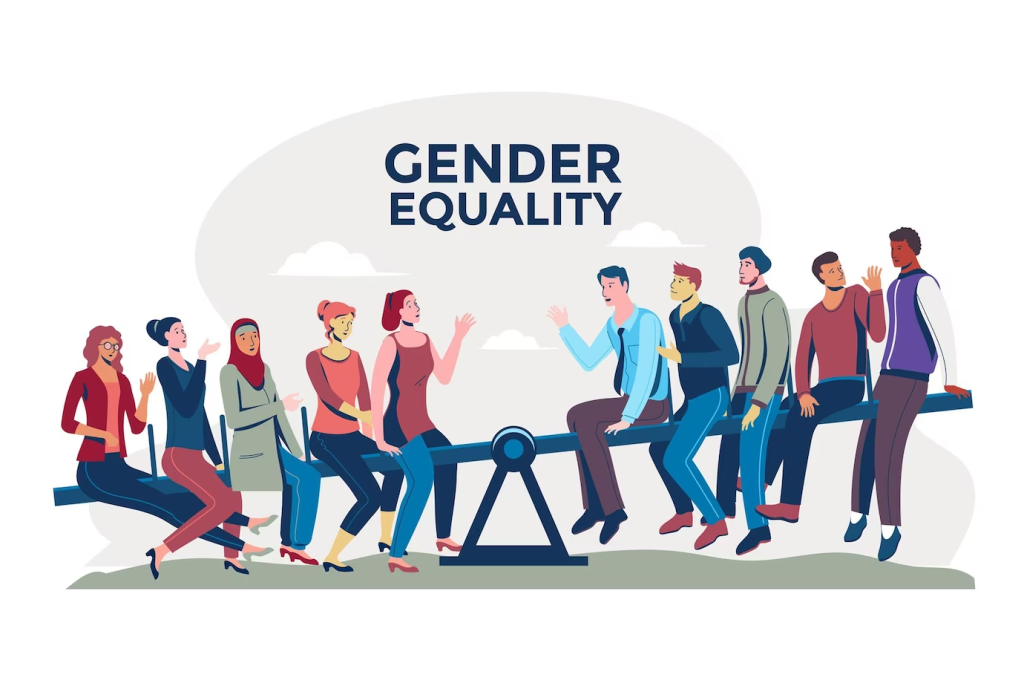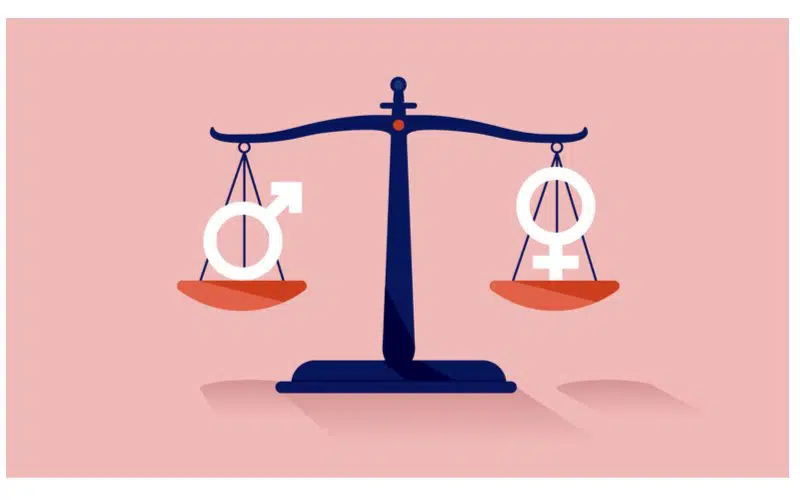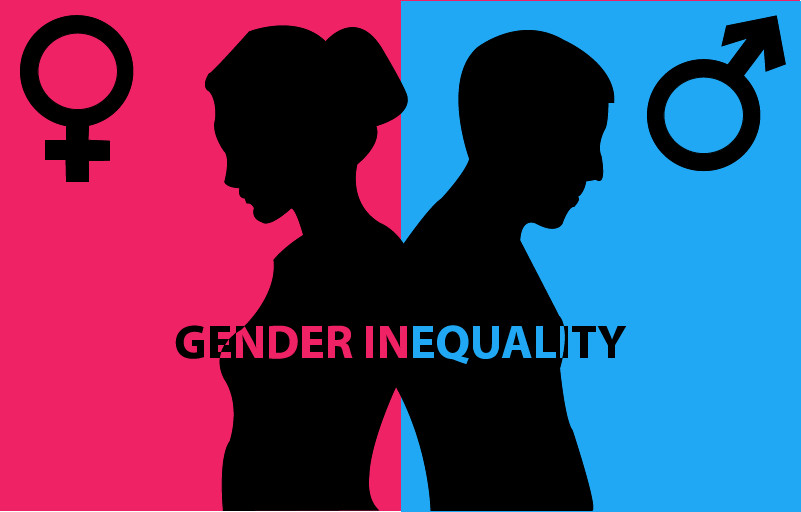Gender equality means ensuring that everyone, regardless of gender, has equal rights, opportunities, and access to resources. In today’s world, where diversity and inclusion are vital for progress, the importance of gender equality in society cannot be overstated. This article explores why gender equality is essential, its benefits across economic, educational, and social spheres, and how individuals and communities can drive change. From boosting economies to improving health and reducing poverty, gender equality is a cornerstone of a thriving society. We’ll dive into real-world examples, actionable steps, and a vision for a more equitable future.

The Importance of Gender Equality in Society
What is Gender Equality?
Gender equality is the state where people of all genders enjoy equal rights, responsibilities, and opportunities. It’s about fairness in education, work, healthcare, and decision-making. Unlike gender equity, which focuses on providing tailored support to address inequalities, gender equality emphasizes universal access. For example, equal pay for equal work is gender equality; offering maternity leave to balance caregiving is gender equity. Understanding this distinction highlights the importance of gender equality in society as a foundation for fairness.
Why Is Gender Equality Important in Society?
Gender equality is a fundamental human right and a driver of sustainable development. It ensures that everyone can contribute to and benefit from societal progress. The United Nations recognizes gender equality as critical to achieving human rights for all. Societies that prioritize gender equality are healthier, wealthier, and more inclusive. By addressing systemic barriers, we unlock the potential of half the population, making the importance of gender equality in society clear for global advancement.
For more blogs please visit here : businesstoworld
The Societal Benefits of Gender Equality
Economic Growth and Prosperity
Gender equality fuels economic growth. When women have equal access to jobs, education, and resources, economies thrive. A 2020 McKinsey report estimated that closing the gender gap could add $12 trillion to global GDP by 2025. Women’s workforce participation boosts productivity and innovation. For instance, Rwanda’s post-genocide focus on gender equality led to a 50% female parliament and a 6% annual GDP growth rate. Companies like Unilever, with gender-balanced leadership, report higher innovation and profits. The importance of gender equality in society lies in its ability to drive prosperity for all.
Actionable Tip: Support women-owned businesses or advocate for equal pay policies at your workplace to contribute to economic growth.
Improved Education Outcomes
Gender equality in education transforms lives and societies. When girls have equal access to schooling, literacy rates rise, child mortality drops, and national growth accelerates. UNESCO data shows that educating girls reduces child mortality by 9% and boosts GDP by 0.3% annually. Educated women raise healthier, better-educated children, creating a ripple effect. In Malawi, programs like CAMFED have increased girls’ school enrollment by 20%, leading to stronger communities. The importance of gender equality in society shines through in these educational gains.
Personal Story: My cousin in rural India struggled to attend school due to gender norms. A local NGO’s scholarship program changed her life, and now she’s a teacher, inspiring other girls. This shows how education drives equality.
Better Health and Well-being
Gender equality improves health outcomes. Equal access to healthcare reduces maternal and child mortality. In Bangladesh, gender-inclusive health policies cut maternal mortality by 40% since 2000. Gender equality also supports mental health by reducing stress from discrimination. For example, Sweden’s gender-neutral parental leave policies have improved family well-being and reduced postpartum depression. The importance of gender equality in society is evident in healthier, happier populations.
Reduction of Poverty
Gender equality is a powerful tool for poverty reduction. When women have equal access to land, credit, and jobs, entire communities benefit. A World Bank study found that women’s economic empowerment reduces poverty rates by 10% in developing nations. In Uganda, women’s farming cooperatives have increased household incomes by 30%, lifting families out of poverty. By ensuring equal opportunities, the importance of gender equality in society becomes a catalyst for economic stability.
Social Stability and Innovation
Gender-equal societies are more stable and innovative. Research from the World Bank shows that countries with higher gender equality have lower corruption and stronger civic engagement. For example, Iceland, a global leader in gender equality, ranks high in innovation and quality of life. Gender diversity fosters creative problem-solving, as seen in tech firms with balanced teams outperforming male-dominated ones. The importance of gender equality in society lies in building cohesive, forward-thinking communities.

Real-World Examples: Implementing Gender Equality
Promising Practices from Around the World
Countries like Bangladesh, Malawi, and Nepal have shown the importance of gender equality in society through successful programs:
- Bangladesh: BRAC’s microfinance programs empower women entrepreneurs, increasing household incomes by 25%.
- Malawi: Girls’ education initiatives have boosted secondary school completion rates by 15%.
- Nepal: Community-led campaigns against child marriage have reduced rates by 20%, promoting women’s rights.
These interventions focus on education, economic empowerment, healthcare, and violence prevention, proving that targeted action works.
Lessons Learned and Key Takeaways
What makes these programs effective? Engaging men as allies, involving youth, and using community-based approaches are key. For example, Uganda’s male engagement campaigns reduced domestic violence by 30%. Inclusive education and cross-sector collaboration—between governments, NGOs, and locals—ensure lasting impact. Tailoring solutions to local contexts, like Nepal’s cultural campaigns, is critical. These lessons underscore the importance of gender equality in society as a collaborative effort.
Overcoming Barriers to Gender Equality
Common Challenges
Cultural norms, stereotypes, and economic barriers hinder gender equality. Traditional roles often confine women to domestic tasks, while wage gaps persist globally (women earn 82 cents for every dollar a man earns, per ILO data). Gender stereotypes in media reinforce biases, and lack of legal protections in some regions perpetuates inequality. Addressing these challenges is central to the importance of gender equality in society.
Addressing Systemic Inequities
Policy reforms, like equal pay laws and anti-discrimination policies, are essential. Education campaigns can shift mindsets—Rwanda’s school programs reduced gender stereotypes by 25%. Media plays a role, too; campaigns like #HeForShe promote allyship. Advocacy groups, such as UN Women, push for legal protections. By tackling systemic issues, we reinforce the importance of gender equality in society.
Actionable Tip: Challenge stereotypes in your daily life. Call out biased comments or support media that portrays diverse, empowered women.
The Role of Individuals and Communities
How Everyone Can Support Gender Equality
Everyone can promote gender equality:
- At Home: Share household responsibilities equally.
- At Work: Advocate for fair hiring and promotion practices.
- In Community: Support women’s leadership in local projects.
Allyship is key—men and women working together amplify change. The importance of gender equality in society starts with collective action.
Advocacy and Policy Change
Support organizations like UN Women or local NGOs advancing women’s rights. Engage in civic action, like signing petitions for equal pay laws or attending rallies. Voting for leaders who prioritize gender equality shapes policy. By advocating, you contribute to the importance of gender equality in society.
Actionable Tip: Follow an organization like Women Deliver on social media and share their campaigns to raise awareness.
The Future: Gender Equality as a Driver of Sustainable Development
Gender Equality and the Sustainable Development Goals (SDGs)
Gender equality is central to the UN’s SDGs, particularly SDG 5. It connects to goals like poverty reduction, health, and education. For example, achieving gender equality could help meet SDG 1 (No Poverty) by empowering women economically. The importance of gender equality in society lies in its role as a catalyst for global progress.
Envisioning an Equitable Society
A gender-equal society is prosperous, healthy, and innovative. Women and men lead together, resources are shared fairly, and diverse voices shape progress. This vision ensures a better future for generations, proving the importance of gender equality in society as a long-term investment.

FAQs: importance of gender equality in society
-
What is gender equality?
Gender equality means equal rights, responsibilities, and opportunities for people of all genders. -
Why is gender equality important in society?
It promotes fairness, reduces poverty, enhances economic growth, and improves overall well-being. -
How does gender equality impact the economy?
It boosts productivity and innovation by allowing equal participation in the workforce. -
What are the effects of gender inequality?
Gender inequality leads to discrimination, limited access to education and healthcare, and economic disparity. -
How can we promote gender equality in daily life?
By challenging stereotypes, supporting inclusive policies, and ensuring equal opportunities at home, work, and school. -
Is gender equality only about women’s rights?
No, it benefits all genders by promoting fairness and freedom from harmful roles and expectations. -
What role does education play in achieving gender equality?
Education empowers individuals, breaks down stereotypes, and promotes mutual respect and understanding.
Conclusion
The importance of gender equality in society is undeniable—it drives economic growth, improves education and health, reduces poverty, and fosters innovation. From Bangladesh’s microfinance programs to Rwanda’s female-led parliament, real-world examples show its transformative power. By overcoming barriers and taking action, we can build an equitable world. Gender equality isn’t just a moral goal; it’s a strategic necessity for progress. Start today—advocate, educate, and act to make gender equality a reality in your community.

